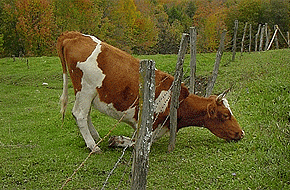
By Allan Barber
In 1985 the Meat Industry Council commissioned a report from consultancy firm, Pappas Carter Evans & Koop, entitled Cost Competitiveness in Export Meat Processing which proposed a solution to the problems of the industry.
There were two key recommendations, the main one being the introduction of a tradable killing rights scheme to encourage the stronger competitors to take volume from the weaker companies or plants which would then close.
The second recommendation was to abolish averaging of transportation schemes and to reduce meat inspection costs through structural and policy changes.
Even today, 28 years after it was published, the first of these proposed solutions still appears to be a logical means of preventing the never-ending expansion of processing capacity and consequent livestock procurement competition.
After all, nothing else in the meantime has been successful, but it wasn’t given the chance to see if it worked.
According to Meat Acts written in the late 90s by Mick Calder and Janet Tyson, the report was damned with faint praise by the industry, having, in the opinion of the processors and exporters, come up with nothing significantly new.
Considering what happened in the early 90s, ironically Trevor Gibson, Chairman of the Meat Industry Association or Freezing Companies’ Association as it then was, stated that there were other solutions to the problems than those recommended by the consultants.
The Meat Industry Council was a short lived body set up at the behest of the Lange’s Labour Government to oversee the efforts of the Meat Board representing farmers and MIA, representing processors and exporters in both North and South Islands. It only lasted less than two years, no doubt discouraged by the lukewarm reception of the report it had commissioned.
In the late 80s several things happened which consolidated plant and company ownership in fewer hands, but achieved none of the industry stability envisaged by Pappas Carter’s report.
The consolidation process weakened the surviving companies because much of it was debt funded.
Among other things, PPCS took over Canterbury Frozen Meats, Advanced Meats started the attack on Hawkes Bay Farmers Meat Company, AFFCO took over R&W Hellaby, Challenge Meats acquired Southland Frozen Meats which it merged with Waitaki Meats, enabling key shareholders Fletcher Challenge and Goodman Fielder Wattie to sell the North island assets to AFFCO and the balance to Alliance, nearly sending both companies into receivership.
In AFFCO’s case by the early 90s farmers’ equity was worth nothing and the banks had to write off a substantial amount of debt before the company was listed on the stock exchange in 1994.
Pappas Carter’s argument was that the tradable killing rights scheme was the “most effective feasible way of meeting the three essential criteria for any scheme to reduce costs in export processing: that plant utilisation should be raised industry-wide; that competitive behaviour among plants should be strongly encouraged; and that minimal budgetary costs should be imposed on the New Zealand people.”
The report outlined four alternative solutions, none of which was accorded much merit:
i. Rely on market forces to achieve closures and efficiency improvements;
ii. Draw up a list for closure and enforce it;
iii. Control and reduce killing charges which would force weaker plants to close;
iv. Finance voluntary exit, either by industry levy or government subsidy.
The consultants considered forced closure to be the least undesirable of these alternatives.
What has actually been in operation since 1985 is the first alternative of reliance on market forces.
As a result farmers are not happy with the current state of the industry, although there is no real likelihood that any change will solve the problems of the exchange rate or market prices.
However if the Meat Industry Excellence Committee is determined to achieve changes in farmer culture, procurement transparency, industry structure, as well as gaining government backing, it will have to develop a plan.
A good starting point would be to understand the concept of tradable killing rights which may ultimately offer the best solution.
However the meat processors and exporters may be no more favourably disposed to this solution than they were 28 years ago.
Therefore it would be sensible to initiate discussions with the MIA as soon as there is national farmer agreement on the concept.
Government support will be much easier to obtain if the whole sector is in favour of a particular course of action, especially if it requires relatively little financial input from the tax payer.
At the same time the banks will be happier to accept a managed process that has industry support.
At last farmers have the chance to have a positive say in the future of the meat industry instead of feeling alienated from what happens outside the farm gate.
---------------------------------------------------------------------------------------
Here are some links for updated prices for
- lamb
- beef
- deer
- wool
Y Lamb
Select chart tabs
---------------------------------------------------------------------------------------
Allan Barber is a commentator on agribusiness, especially the meat industry, and lives in the Matakana Wine Country where he runs a boutique B&B with his wife. You can contact him by email at allan@barberstrategic.co.nz or read his blog here ».

We welcome your comments below. If you are not already registered, please register to comment
Remember we welcome robust, respectful and insightful debate. We don't welcome abusive or defamatory comments and will de-register those repeatedly making such comments. Our current comment policy is here.